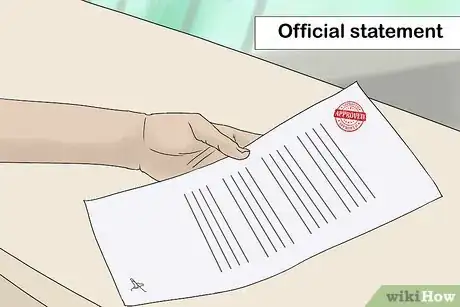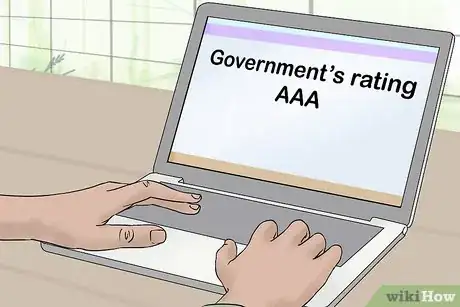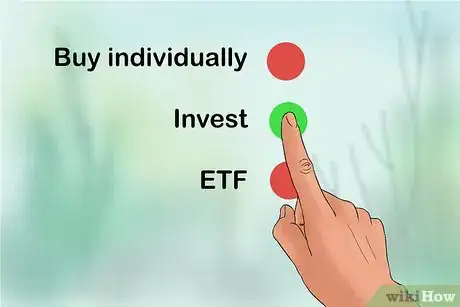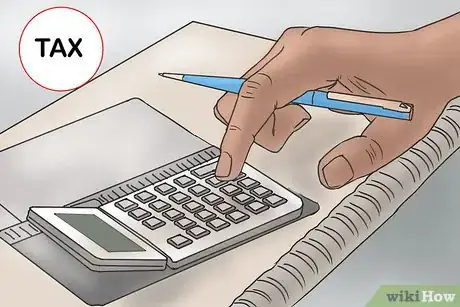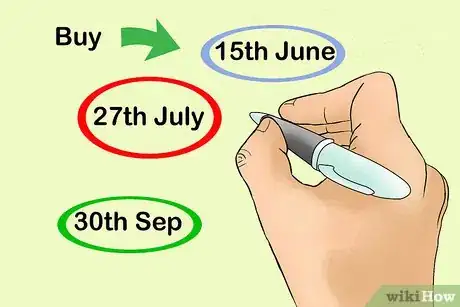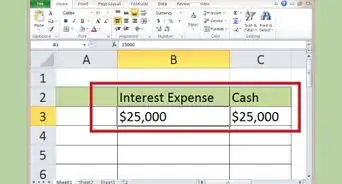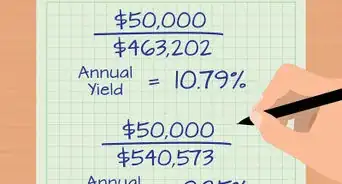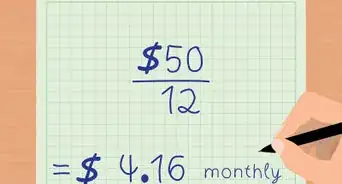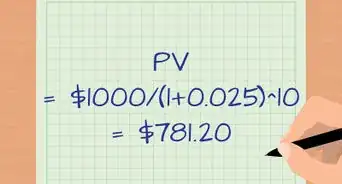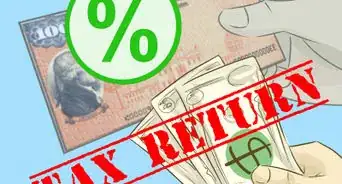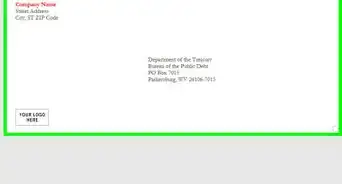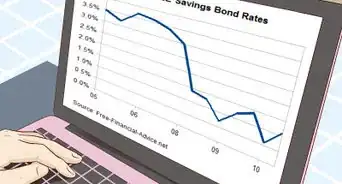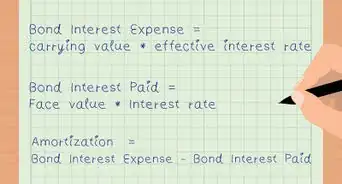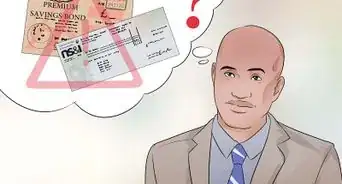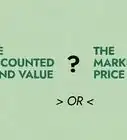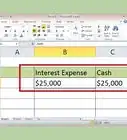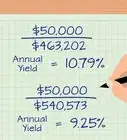This article was co-authored by Marcus Raiyat. Marcus Raiyat is a U.K. Foreign Exchange Trader and Instructor and the Founder/CEO of Logikfx. With nearly 10 years of experience, Marcus is well versed in actively trading forex, stocks, and crypto, and specializes in CFD trading, portfolio management, and quantitative analysis. Marcus holds a BS in Mathematics from Aston University. His work at Logikfx led to their nomination as the "Best Forex Education & Training U.K. 2021" by Global Banking and Finance Review.
There are 13 references cited in this article, which can be found at the bottom of the page.
This article has been viewed 25,099 times.
Municipal bonds are a great investment for risk-averse investors. When state or local governments need to raise money, they will issue debt obligations called municipal bonds or "muni's". When you buy such a bond you are loaning money to a government in exchange for interest paid to you over the life of the bond. When the bond matures at the end of its term, the full amount you invested is returned to you. Typically muni's are purchased through brokers. [1]
Steps
Identifying Ways to Buy
-
1Start an online brokerage account. Probably the easiest way to buy municipal bonds is to use direct online trading. You create an online account with a broker-dealer, and you are in control of identifying which municipal bonds to buy.
- There are many online brokers you can use. The most well-known include Charles Schwab, Fidelity, E-Trade, Scottrade, and TD Ameritrade. [2]
- Compare online brokerage accounts. Pay particular attention to mark-up fees, which a broker may add to the price of a bond. For example, you might pay $1,000 for a bond but pay an additional $40 mark-up.[3]
-
2Hire a full-service broker. If you want someone to buy muni's for you, hire a broker-dealer. They are called “financial advisors” or “financial consultants.” You pay a broker-dealer a fee to buy munis. The fee is a commission. You must give the broker explicit, written permission to buy the bonds on your behalf.[4]
- Consider a full-service broker if you want help in fashioning an investment strategy. Full-service brokers also provide tax advice and retirement planning. You pay more fees for these services.[5]
- You can find a broker online. Ask them if they are registered with the appropriate government authority.
- Make sure to check the broker’s background with the government. In the U.S. you will contact the Financial Industry Regulatory Authority (FINRA).
Advertisement -
3Work with an investment adviser. A registered investment adviser (RIA) is similar to a broker-dealer. However, they don’t need your explicit permission each time they buy muni's for you. Instead, they can make investment decisions based on a strategy you've agreed upon in advance.[6]
- You can find an RIA online or in your phone book.
- Research an RIA before hiring them. You should check out their Form ADV, which will indicate whether they have had problems with regulators or clients. You can get this form from your state’s securities regulator or online at the Investment Adviser Public Disclosure website: https://adviserinfo.sec.gov/.
-
4Consider buying bonds directly. It’s possible to buy muni's without using a broker-dealer. Contact your local government to see if it offers an early-purchase period for individual investors. Buying bonds this way is called buying in the primary market. [7]
- You may need to have an account with one of the banks offering the bonds.
- Buying in the primary market is usually reserved for people with a high net worth.
Researching Municipal Bonds
-
1Understand what type of bond is being offered. Municipal bonds are typically issued by city or state governments. There are two types of municipal bonds. Consider which one you want to invest in: [8]
- General obligation bonds: governments issue these bonds to cover various expenses. They are supported by the taxing power of the government.
- Revenue bonds: these bonds are used to fund specific infrastructure projects, such as building a new toll highway. They are supported by the income created by those projects and, for this reason, are considered somewhat less safe than general obligation bonds.
-
2Read the official statement. When bonds are issued, the issuer will publish an official statement similar to a prospectus issued for a stock. You should read the statement. It will contain information about the offering and the financial condition of the issuing government or agency.[9]
- Event notices are also published periodically. They update the information in the official statement. For example, you will be told whether there have been any delinquencies in paying principal or interest.
- This information should be available through your broker. If not, you can get it from the EMMA website: https://emma.msrb.org/MarketActivity/RecentTrades.aspx.
-
3Evaluate the government’s rating. One risk when you buy muni's is that the government might not be able to pay back the bonds. With that in mind, various credit-rating agencies rate the creditworthiness of different bonds. Research online to find the ratings from Standard & Poor, Moody’s Investors Service and Fitch Ratings. [10]
- The credit agency's highest rating is either “Aaa” or “AAA.”
- On the rating scale, a D is the default level for both S&P and Fitch. For Moody’s, C is the default level.
-
4Expect greater risk for greater reward. The lower the rating, the higher the interest a bond will pay. You can potentially make a lot more money if you buy bonds rated Ca or lower, but that comes with a greater risk that you won’t get paid at all.
- If you’re worried about risk, you should invest in bonds rated at least BBB, Baa, or better. [11]
-
5Realize that there are two main ways you can hold bonds. You can buy individual municipal bonds, or you can invest in bond funds. A mutual fund can invest in many different municipal bonds at the same time, and you can own a share of that collection of bonds by buying shares of the fund. [12] The people who manage the fund will determine which bonds to invest in.
- You can also own muni's through a municipal bond exchange-traded fund (ETF). Like bond mutual funds, ETFs can hold a wide array of municipal bonds. Shares in an ETF can be sold much faster than a muni bond mutual fund. [13]
- The greatest benefit of municipal bond mutual funds and ETFs is diversity. They own perhaps hundreds of different bonds, which means any specific default won't hurt you much. You can buy fund shares using an online account or by contacting your broker-dealer or registered investment adviser.
-
6Consider the tax consequences. Owning municipal bonds can affect your tax rate in certain ways. You should consider tax consequences before investing. If you have a question, contact a tax professional.
- In the U.S. the interest you earn on a municipal bond is generally exempt from federal taxes. Some muni's are taxed, however. For example, bonds issued to fund a state’s pension plan are taxed at the federal level. [14]
- Often you can avoid state and local taxes if you buy muni's issued by your state or local government. Not all governments, however, offer this tax break. [15]
- A muni may also be taxable if you are subject to the Alternative Minimum Tax (AMT).
Buying the Bonds
-
1Develop a buying strategy. Before buying bonds you should know how long you want to hold on to them. Generally most people who buy muni's hold on to them until they mature. After maturity they may continue to pursue the same strategy by buying more bonds.
- You can own a number of different bonds with various maturity dates. You thus create a "bond ladder" providing a steady income stream using bonds that mature (and pay) on successive dates. If you prefer, you can use the income to invest in more bonds. [16]
-
2Place an order with your broker. Call your broker-dealer and tell them which bonds you want to buy and the number of each. They will guide you through the process.
-
3Order online. You can buy bonds directly through your online brokerage account. You should list the number of bonds you want to buy, and submit your order. If you are buying into a bond mutual fund or exchange-traded fund, you will buy shares of the fund rather than specific bonds.
Community Q&A
-
QuestionWhat rates are municipal bonds paying now?
 DonaganTop AnswererMunis were recently averaging just below 4% annually.
DonaganTop AnswererMunis were recently averaging just below 4% annually. -
QuestionWhat is the different between bonds and municipal bonds?
 DonaganTop AnswererA "bond" can be issued by any private or public entity: basically a company or a government. A municipal bond is one issued specifically by a government or government agency.
DonaganTop AnswererA "bond" can be issued by any private or public entity: basically a company or a government. A municipal bond is one issued specifically by a government or government agency. -
Questionhow can I buy municipal bonds directly without using a broker?
 DonaganTop AnswererYou can buy them from a bond dealer, a bank or even through an issuing entity (such as a city, county or state).
DonaganTop AnswererYou can buy them from a bond dealer, a bank or even through an issuing entity (such as a city, county or state).
References
- ↑ http://www.investopedia.com/articles/bonds/05/022805.asp
- ↑ https://www.forbes.com/2011/01/25/how-to-open-your-first-online-brokerage-account-personal-finance.html
- ↑ http://www.dummies.com/personal-finance/investing/online-investing/how-to-buy-individual-bonds-online/
- ↑ http://www.msrb.org/sites/default/files/Ways-to-Buy-Municipal-Bonds.pdf
- ↑ https://www.nerdwallet.com/blog/investing/full-service-broker-discount-broker/
- ↑ http://www.msrb.org/sites/default/files/Ways-to-Buy-Municipal-Bonds.pdf
- ↑ http://www.finra.org/investors/alerts/municipal-bonds_important-considerations-individual-investors
- ↑ http://www.investopedia.com/articles/bonds/05/022805.asp
- ↑ https://www.finra.org/investors/alerts/municipal-bonds_important-considerations-individual-investors
- ↑ http://www.investopedia.com/articles/bonds/05/022805.asp
- ↑ http://www.investopedia.com/articles/bonds/05/022805.asp
- ↑ http://www.finra.org/investors/highlights/5-ways-buy-muni-bond
- ↑ http://www.investopedia.com/articles/investing/032613/why-you-should-invest-municipal-bond-etfs.asp
- ↑ http://www.investopedia.com/articles/06/munibond.asp
- ↑ http://www.bankrate.com/investing/the-lowdown-on-buying-municipal-bonds/
- ↑ http://www.investopedia.com/articles/bonds/05/022805.asp





